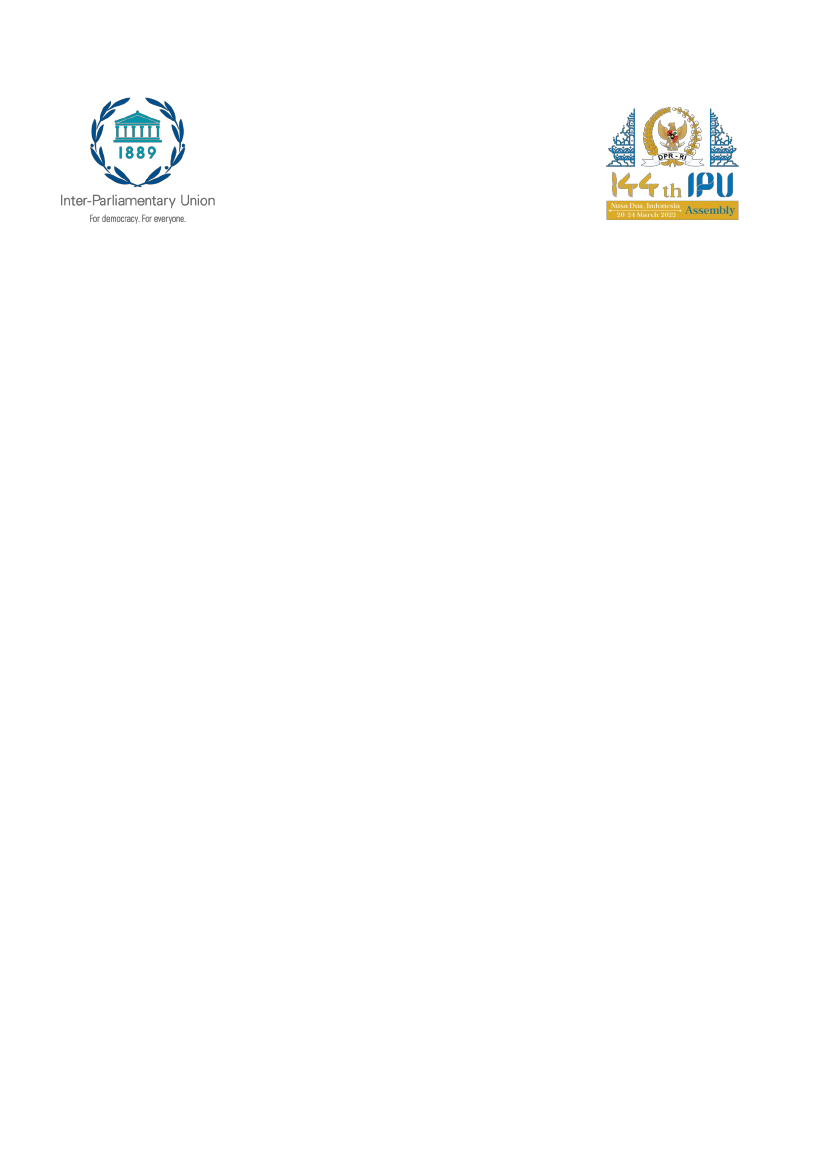
144th IPU Assembly
Nusa Dua, Indonesia
20-24 March 2022
Leveraging Information and Communication Technology
as an enabler for the education sector,
including in times of pandemic
Resolution adopted unanimously by the 144th IPU Assembly
(Nusa Dua, 24 March 2022)
The 144th Assembly of the Inter-Parliamentary Union,
Welcoming
Sustainable Development Goal 4, the Incheon Declaration and
the United Nations Secretary-General’s Roadmap for Digital Cooperation that all
recognize the importance of equitable access to information and communication
technology (ICT) in education,
Encouraging
the use of ICT to support, enhance and optimize the delivery of
information to create new teaching methods and improve learning results while paying
attention to challenges in terms of human rights, equity and inclusion, security and
privacy, infrastructure, connectivity and the financing of expensive digital capacities,
Recognizing
the fact that the world had been facing a global learning crisis
long before the COVID-19 pandemic started,
Aware
that, according to the Institute for Statistics of the United Nations
Educational, Scientific and Cultural Organization (UNESCO), in 2016, over 600 million
children and adolescents were estimated to be not reaching minimum proficiency levels
in reading and mathematics, and that an estimated 53 per cent of children in low- and
middle-income countries cannot read proficiently by age 10, a phenomenon the World
Bank defined as “Learning Poverty”,
Welcoming
the United Nations Children’s Fund’s (UNICEF) call to address
the learning crisis and urgently increase finance for education for children, with special
attention to the disadvantaged and marginalized – children living with disabilities, migrant
and refugee children, and children in remote areas,
E
#IPU144
Highlighting
Sustainable Development Goal 10 and the fact that the
COVID-19 pandemic has aggravated gaps between rural and urban areas, with a critical
impact on the education of children, especially the disadvantaged ones, and that Africa
and Asia account for nearly two-thirds of the 463 million school children unable to access
remote learning,
Noting
that learning is the right of every child,
Bearing in mind
that remote learning can open up vast opportunities in
bridging disparities between urban and remote areas, by bringing new applications to
classrooms, as well as by reaching out to families in times of pandemic, but that it can
also expose children to a myriad of risks including cyberbullying, and online abuse and
exploitation,